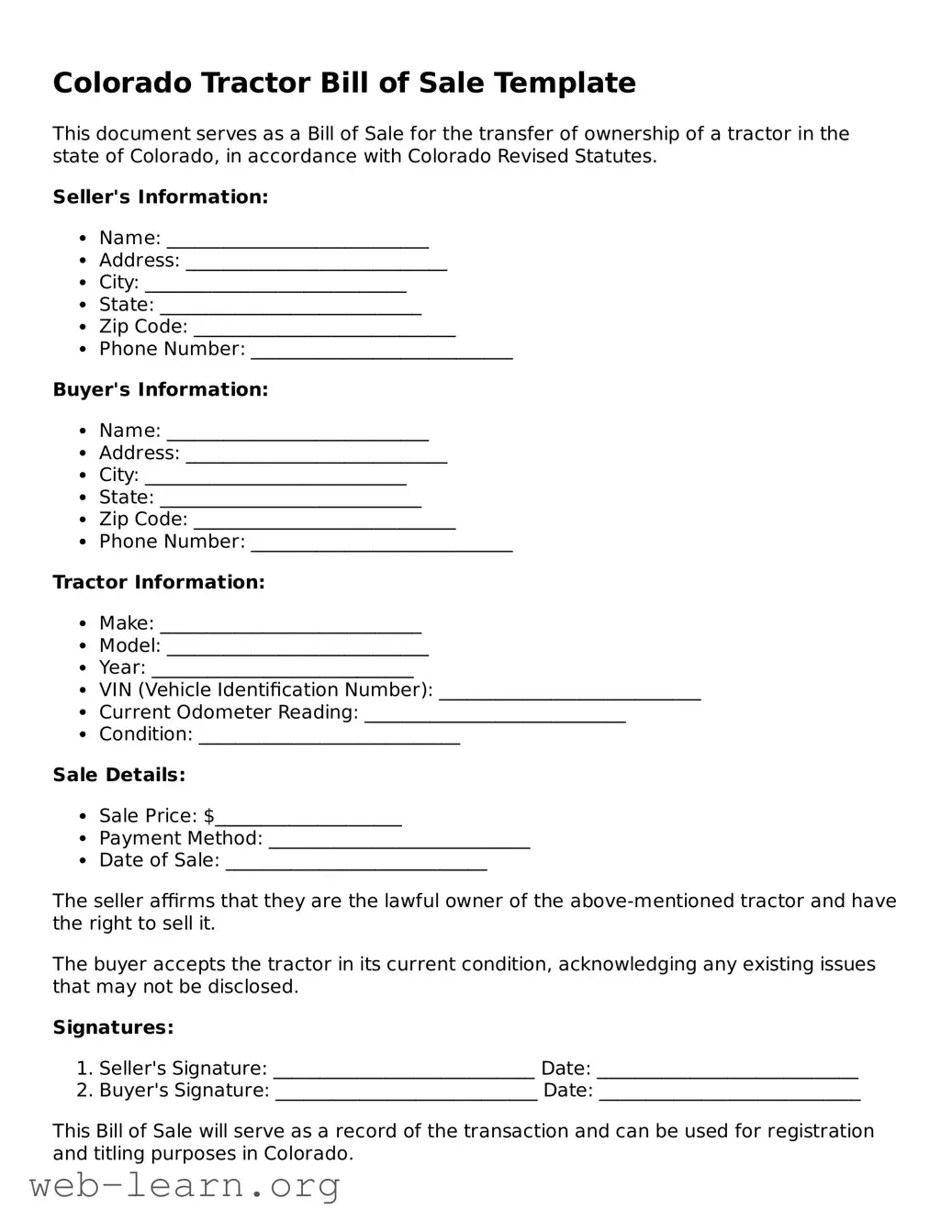Colorado Tractor Bill of Sale Template
This document serves as a Bill of Sale for the transfer of ownership of a tractor in the state of Colorado, in accordance with Colorado Revised Statutes.
Seller's Information:
- Name: ____________________________
- Address: ____________________________
- City: ____________________________
- State: ____________________________
- Zip Code: ____________________________
- Phone Number: ____________________________
Buyer's Information:
- Name: ____________________________
- Address: ____________________________
- City: ____________________________
- State: ____________________________
- Zip Code: ____________________________
- Phone Number: ____________________________
Tractor Information:
- Make: ____________________________
- Model: ____________________________
- Year: ____________________________
- VIN (Vehicle Identification Number): ____________________________
- Current Odometer Reading: ____________________________
- Condition: ____________________________
Sale Details:
- Sale Price: $____________________
- Payment Method: ____________________________
- Date of Sale: ____________________________
The seller affirms that they are the lawful owner of the above-mentioned tractor and have the right to sell it.
The buyer accepts the tractor in its current condition, acknowledging any existing issues that may not be disclosed.
Signatures:
- Seller's Signature: ____________________________ Date: ____________________________
- Buyer's Signature: ____________________________ Date: ____________________________
This Bill of Sale will serve as a record of the transaction and can be used for registration and titling purposes in Colorado.
